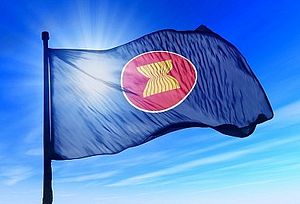Earlier this week, local media outlets reported that Malaysia, as the 2015 chair of the Association of Southeast Asian Nations (ASEAN), had formulated strategies and priorities to realize the establishment of an ASEAN Community by the end of 2015 ahead of the 26th ASEAN Summit and related meetings to be held in Malaysia this weekend.
The reports were based on an interview that Foreign Minister Anifah Aman had given Malaysia’s national news agency Bernama. In that interview, Anifah outlined some of the specific priorities Malaysia had as ASEAN chair for the year. These were not new and were drawn from the eight priorities Malaysia outlined for its chairmanship back in January. The eight priorities were: the official formation of a strong ASEAN community; building a post-2015 vision with related guidelines and documents; steering ASEAN closer to the people; developing small- and medium-sized enterprises; expanding intra-ASEAN trade and investment, strengthening ASEAN institutions; promoting regional peace and security; and enhancing the association’s role as a global player. I covered some of these priorities in an earlier piece here.
Some of these priorities will find their way in some form into the chairman’s statement usually issued at the ASEAN summit. This is traditional practice, since many of these ‘priorities’ are not Malaysia’s alone as ideas and initiatives are often carried through between ASEAN chairs. Furthermore, Malaysia is also chairing ASEAN during a year when regional considerations are going to feature even more prominently, since the ASEAN Community will come into existence and plans have already begun to shape the post-2015 agenda as well, as I have written previously.
In addition to the chairman’s statement, Anifah also reportedly said that Malaysia had proposed that ASEAN leaders adopt two declarations. The first is on the Global Movement of Moderates, a Malaysian initiative to use moderation to counter extremism that has been promoted by the government of Prime Minister Najib Razak both regionally and internationally since 2010. This is no surprise given the rising threat the government perceives from the Islamic State. The second is on a people-centered ASEAN, in line with Malaysia’s theme for its ASEAN chairmanship of “Our People, Our Community, Our Vision” which seeks to bring the grouping closer to the people.
In line with this theme, Anifah said separately that Malaysia has chosen to convene the summit in both Kuala Lumpur and in Langkawi – rather than the usual practice of having it in just one location – in a symbolic attempt to include people living outside the capital. The plenary session will be held in Kuala Lumpur, while the retreat session will be held in Langkawi.
Of course, ASEAN is a ten-member grouping so there will be other regional and global concerns raised at these meetings beyond just Malaysia’s priorities. To take just one example, the Philippines has been saying that it wants to raise the issue of China’s land reclamation in the South China Sea with other ASEAN leaders – more so than it did during the last summit.
































